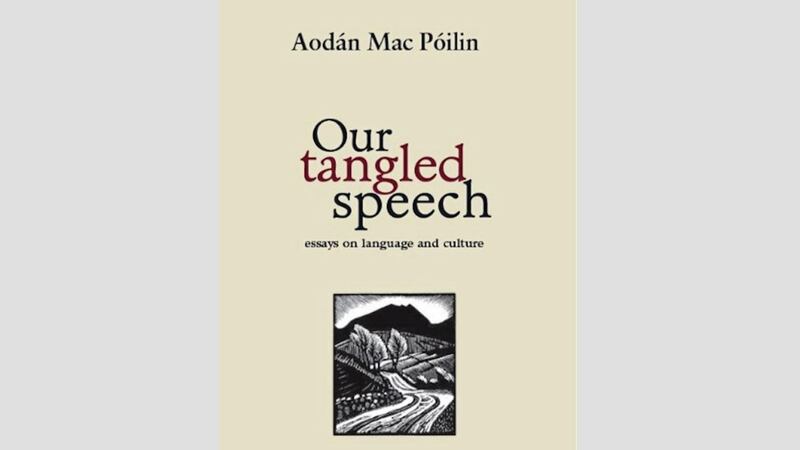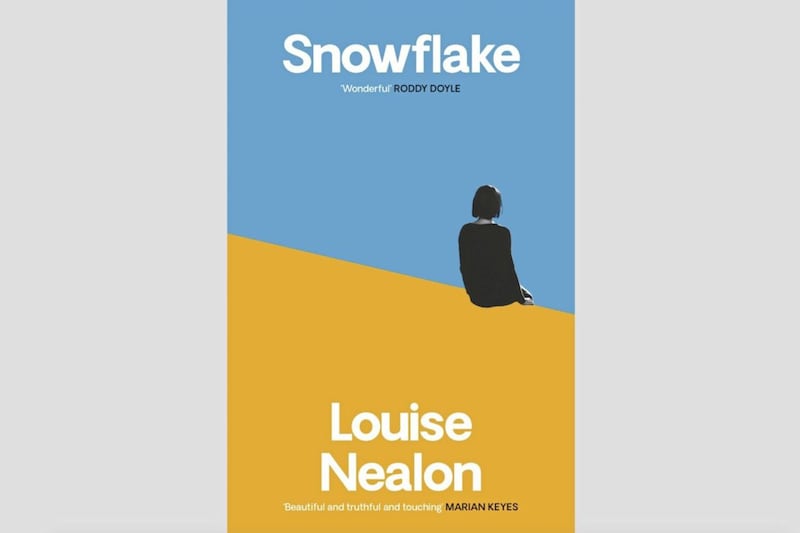Our Tangled Speech: Essays on Language and Culture by Aodán Mac Póilin, published by the Ulster Historical Foundation and Ultach Trust
IT IS just over two years since the untimely passing of Irish-language scholar and inter-community promoter par excellence Aodán Mac Póilin.
As a founder and director of the Ultach Trust, Mac Póilin helped spearhead much of the cross-community engagement with the Irish language over the past two decades across Northern Ireland.
The loss of this resolute modern pioneer is still being felt not just among Gaeilgeoiri and Irish-language enthusiasts but also as a result of his tireless role in building an understanding among our communities that the language belonged to all and that those trying thwart its promotion as an equal part of life in the north were totally wrong.
However, the recent posthumous launch of Mac Póilin’s book Our Tangled Speech: Essays on Language and Culture, in the BBC’s Belfast city centre studio, while indeed wistful, also marked a celebration by hundreds of people that spanned generations and communities. It was backed up joyfully, as he would have liked, by Irish traditional music and song. Indeed it was more than a book launch; it was an evening dedicated to Mac Póilin’s rich legacy.
Fortunately, Mac Póilin’s gift as a writer and visionary continues to speak to us from this collection of his essays by challenging those who share his commitment to Irish to carry on his work. Its 14 provocative chapters span such themes as the revival of the language in Belfast, cultural identity and the importance of Irish-language broadcasting in the north, including the battle he waged to end the less than fair treatment evidenced over many years on the part of the higher echelons of the BBC.
Indeed Mac Póilin’s own persistence in working to change the broadcaster’s attitude towards Irish helped it gain its increasing acceptance.
Mac Póilin’s collection underscores his reputation as a significant educationalist along with his important reminder that the Irish language revival was started by Belfast Protestants.
"They were the first to try to restore Irish as an everyday language. Both unionists and nationalists were involved but most language enthusiasts in 19th century Belfast were unionists,” he writes.
With his deep knowledge of the history of the language in Belfast, Mac Póilin also underlines that the efforts by a large section of official unionism to paint Irish as a threat to unionist identity are in fact more recent developments.
He points, for example, to Queen Victoria’s diary entry of her 1849 visit to Belfast, where she noted that her “favourite motto written up on most of the arches etc and in every place was Céad Míle Fáilte’, which means ‘a hundred thousand welcomes’ in Irish... they often called out Céad Míle Fáilte and it appears in every kind of shape.”
By contrast, in a related essay focusing on 'Linguistic Politics in Northern Ireland', Mac Póilin cites the full-throated intervention of then Stormont first minister Peter Robinson in 2008 and his declaration that “there has been something of a culture war in Northern Ireland – we intend to fight back”.
He compares Robinson’s approach to speaking out on cultural issues with that of other public figures.
Normally one would “expect subtlety, nuance and complexity", he writes. "But when a politician who has never before shown much interest in the subject makes a major intervention on a cultural issue, concerned citizens reach for their bulls**t detectors.”
He would no doubt have found validation for his analysis of Robinson’s opportunism by the latter’s declaration last year that he now saw an Irish language act to be of little concern to unionist identity.
While never deviating from his essential role as a language revivalist, Mac Póilin's enduringly useful book chronicles the difficulties of navigating away from attempts to politicise Irish while showing its value as a vehicle for building common ground rather than sustaining division.
His books also serves the twofold purposes of helping to educate the uninitiated about the historic roots of the language in the life of all of Ulster and its communities, and also as an invaluable tool for combating continued misconceptions, if not downright untruths, to demonise a rich part of what is in fact a shared heritage.
:: Professor Francis Costello holds a Doctorate in Modern Irish History. Our Tangled Speech can be ordered from the online bookstore of the Ulster Historical Foundation (booksireland.org.uk) for £19.99 (plus P&P). It can also be collected in person from the Ulster Historical Foundation's offices on the first floor of the Corn Exchange Building, 31 Gordon Street, Belfast, BT1 2LG.








